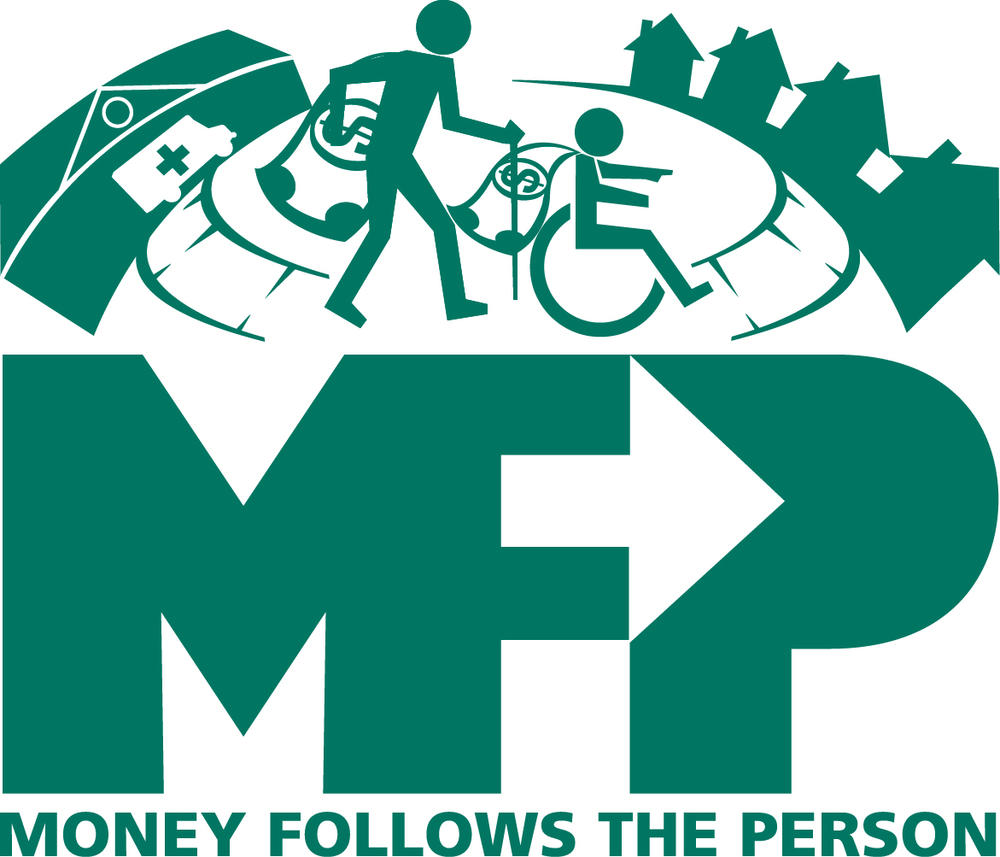
Georgia Money Follows The Person (Ga MFP)

Money Follows the Person (MFP) is a rebalancing initiative that was made possible by an eleven-year grant to states from the Centers for Medicare and Medicaid Services (CMS). This grant is designed to help individuals who are institutionalized in in-patient facilities like nursing facilities, hospitals and intermediate care facilities for individuals with intellectual and developmental disabilities (ICF/IDD) return to their homes and communities.
The Georgia Department of Community Health implemented Money Follows the Person on September 1, 2008. The MFP grant opportunity was made available as part of the Deficit Reduction Act of 2005 and reauthorized under the Affordable Care Act (ACA) of 2010. MFP is a joint initiative between the Georgia Department of Community Health (DCH), the Georgia Department of Behavioral Health and Developmental Disabilities (DBHDD) and the Georgia Department of Human Services (DHS) Division of Aging Services (DAS). The project’s goal is to transition Georgians residing in institutional settings to the community primarily through use of Georgia’s Medicaid waiver programs – the Elderly and Disabled Waiver Program (EDWP), the Independent Care Waiver Program (ICWP), the New Options Waiver (NOW), and the Comprehensive Support (COMP) Waiver.
MFP Information for Georgia Consumers
What is MFP?
Money Follows the Person (MFP) allows people in inpatient facilities (i.e. hospitals, psychiatric residential treatment facilities, nursing homes or other long-term care facilities) who are youth with mental illness, elderly or have physical, intellectual and developmental disabilities to move out and receive services to live in their own homes and communities.
-
FACT SHEET - Money Follows the Person - Updated 03/14/22
-
Referral Form - Updated 07/16/14; Reviewed 03/17/22
-
Money Follows the Person Consumer Brochure - Updated 07/31/12; Reviewed 03/17/22
-
Money Follows the Person Complaint Form - Updated 07/16/14; Reviewed 03/17/22
-
Money Follows the Person Poster - July 2012 - Updated 07/31/12; Reviewed 03/17/22
Who can benefit from MFP?
To be eligible for MFP, a participant must:
- Live in an inpatient facility (i.e. hospitals, psychiatric residential treatment facilities, nursing homes or other long-term care facilities)
- Be a Medicaid beneficiary for at least one day prior to transition
- Meet institutional level of care
- Move into a qualified residence (home, apartment or group setting)
What can I expect from MFP?
If you wish to participate in MFP (or refer a friend or family member to the program), contact the state MFP office at [email protected] or call 404-651-9961. An Options Counselor or Transition Coordinator will contact you to arrange a screening to determine your eligibility for MFP and to find out what you may need in order to resettle in the community. The Options Counselor or Transition Coordinator will then assist you in arranging home and community-based services through one of Georgia’s Medicaid waiver program or other Medicaid services. With assistance from the Options Counselor and Transition Coordinator, you and your family, friends, and representatives will begin planning together for what you want your life in the community to be like. When you are ready to leave the facility, the MFP program can provide you with assistance such as security and utility deposits, furnishings and basic household items, moving costs, environmental modifications to make your home or apartment accessible, connections with peer supporters and other community resources, and other additional services.
Contact Us
If you have any questions about MFP, contact:
- The Department of Human Services Aging & Disability Resource Connections at 866-55-AGING (866-552-4464) or https://www.georgiaadrc.com/
- The Office of the Long Term Care Ombudsman at (888) 454-LTCO (5826)
- DCH, MFP Project Staff at [email protected] or by calling 404-651-9961.